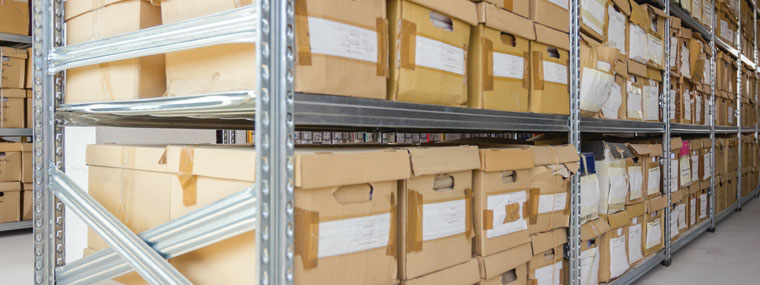
Official Records Issues
By Lilliana Farinas-Sabogal, Esq. / Published November 2021

Anyone who has ever served on a board of directors of a condominium association or has ever managed a condominium association knows that there are a number of laws that regulate the keeping and reviewing of its official records.
The Florida Condominium Act sets out 16 separate classes of items that constitute “official records” of an association and a “catch-all” class that includes “all other written records” not specified in the prior 16 classes and which “relate to the operation of a condominium.”
In essence, if it is written and relates to the operation of a condominium, it is an official record that is subject to review by the members. This seems simple enough. The statute specifies how long the association must keep each class of items and then sets forth the timeframe within which these must be made available to the members seeking their review. What could possibly go wrong?
Unfortunately, the answer to that question is—plenty.
Make sure your association has (and follows) a process for keeping its official records.
Although the Florida Condominium Act clearly requires associations to keep official records, many associations don’t always do so; or do not do so consistently; or do not do so in a way that makes it possible to locate them years later. This can result from a lack of professional management in cases where a self-managed association is simply not clear on its obligations. It can also result from an abrupt change in management, where the prior manager fails to turn over the association’s documents. There may be other reasons for this. The bottom line is that it happens. In such cases, an association that is trying to comply with its obligations under the Florida Condominium Act to produce certain official records within the specified time just can’t do so. If official records do not exist, they cannot be produced on request as required by law. This may lead to a complaint and investigation by the DBPR, which may issue fines or other sanctions against an association. It can also create problems for the association in other ways. Many times, there is a need to look back through records for other reasons. For example, budget creation, contract enforcement, meeting agenda preparation, and many other typical association actions rely on reviewing association records.
Anyone currently managing a condominium association or currently on the board of directors of a condominium association should take some time to ensure that the association’s recordkeeping process is formalized and followed. While you cannot always remedy mistakes from the past, you can ensure that going forward, your records are well preserved as required by law.
The legislature requires condominium associations that are larger than 150 units to keep a website that has a section where a number of classes of official records are posted as well. This includes meeting notices and agendas, budgets, and a host of other items. A review of your association’s recordkeeping procedures should include a review of your association’s uploading procedures as well.
Make sure your association’s records are kept in a way that allows them to be located in the future.
Perhaps your association has kept all of its official records for the last 25 years. When a new board member inquires as to the official records, one director proudly directs the new board member to the storage facility where boxes and boxes of documents are located…but none of the boxes are marked. This is actually not as uncommon as you may think. Prior to the digital age we are currently in, a given association could easily accumulate enough paper official records to cover every inch of its building. If these documents are not organized in a way that makes them easy to retrieve as needed, it can create a large headache for the person responsible for finding a particular document or set of documents. As with the keeping of the records noted above, if a process of organization has not been consistently followed in the past, going forward, some clear and easy to follow system should be implemented. Also, to the extent possible, the most recent years prior to the current year should undergo some systemization to ease the burden on retrieving them should they be necessary in the future.
Make sure your association has reasonable rules and regulations regarding the review of official records.
Most requests to review the official records of an association are made by people who genuinely want to see the records for legitimate reasons, even if just for curiosity about the workings of their association. Unfortunately, however, there are cases where official records requests have become unduly burdensome and tools to harass. Because the association is required to respond to a request to review official records within a specified period of time, and because not every association keeps their records in an orderly fashion or on site or has employees who can be dispatched to search for the requested documents, repeated lengthy requests for different records in quick succession of one another can hamstring an association from doing much of anything else except looking for and producing the requested records in a timely manner. There are DBPR arbitration cases that address this. They have confirmed the Florida Condominium Act provision that allows an association to adopt “reasonable rules regarding the frequency, time, location, notice, and manner of record inspections and copying” official records. There is no firm definition on what kinds of rules are “reasonable” because reasonableness can be different depending on the number of employees, number of units, number of records requested, etc… However, the legislature did clarify this year that the association may not require a member to demonstrate any purpose or state any reason for the inspection request. It is recommended that associations consult with their attorney to ensure they have rules in place that can balance the needs of the members receiving timely responses as well as those persons in charge of retrieving the records in a timely manner.
Understand that there are exclusions to reviewable “official records.”
Finally, when producing official records pursuant to a request, the association should make sure that it is not revealing information that the Florida Condominium Act has deemed to not be accessible to unit owners. The categories of off-limits information are listed in the Florida Condominium Act and include, among other things, personal identifying information (like social security numbers and drivers’ license numbers), medical information, and other items that protect either the association or the unit owners and tenants. Given the type of sensitive information that can be located in association official records, those producing records in response to requests would do well to consult with their legal professionals to ensure they understand exactly how to keep the protections set forth in the statutes.
Organizing your association’s official records and understanding the association’s obligations relative to them is possible with determination, time, and implementation of a clear process going forward. Though there are many items to attend to in managing or serving on the board of directors of a condominium association, recordkeeping and record management should not be treated as something to get to when you have the time but rather among the priorities of the association.
Lilliana Farinas-Sabogal
Shareholder, Becker
Lilliana Farinas-Sabogal is a shareholder in Becker’s Community Association and Business Litigation practice groups. In addition to her experience in assisting community associations in their day-to-day business, management, and operational aspects of governing their communities, she assists boards of directors, unit owners, and community association managers in analyzing and resolving their often complex contractual and transactional disputes and issues. Ms. Farinas-Sabogal is also one of a select number of attorneys statewide who are Board Certified Specialists in Condominium and Planned Development Law. For more information, email LFarinas@beckerlawyers.com or call (305) 262-4433.




